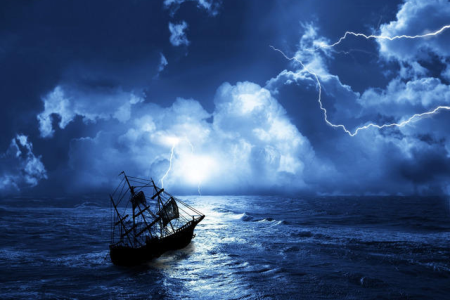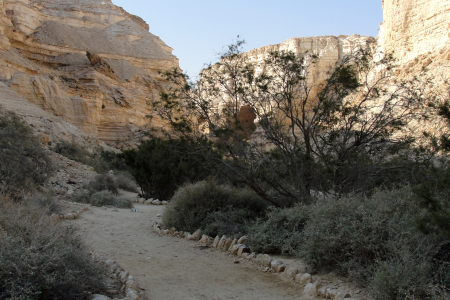Baal HaSulam (Kabbalist Yehuda Ashlag) wrote the article “A Speech in Celebration of the Conclusion of The Zohar” (Maamar le Sium ha Zohar) when he completed his 21 volume commentary on The Book of Zohar. On this occasion he organized a big celebratory lunch or meal on Mount Meron, the place where the author of The Book of Zohar, Rabbi Shimon Bar Yochai (Rashbi) is buried. Baal HaSulam recited this speech there. Afterwards people wrote it down, formatted it and it resulted in an article called “A Speech in Celebration of the Conclusion of The Zohar.”
Here he describes that the person’s entire task in our world comes down to becoming completely similar to the Upper Force, i.e. the quality of love and bestowal. To become similar to the Upper Force means to ascend to its level, unify with it, to become just as eternal and perfect as it, beyond any perceptions, problems, or that which happens on lower levels. All of humanity collectively must ascend to this level, which is the only level that really exists.
It is because all other sub-levels are below the World of Infinity. They exist only in our subjective perceptions, but not in reality. There exists only one state, the World of Infinity where creation (i.e. the quality of reception) and the Creator (i.e. the quality of love and bestowal) are constantly merged together in eternal and infinite existence.
Therefore, in order to reach this state, we should not move to another place, wait for time to do this to us or for someone else to do this for us. That’s impossible. The only path is when the person changes his attributes in similarity to the attributes existing in the World of Infinity. To the degree he is similar to these attributes, he ascends and comes closer to the World of Infinity. It is because in the spiritual world, just as in the physical world there are fields and all kinds of attributes between objects, they get closer to each other to the degree they are similar and separate from each other to the degree they differ. The same thing is true in the spiritual world, if our attributes will become similar to the attributes of the World of Infinity, or the attributes of the quality of love and bestowal, in any way, then we will begin to perceive it.
Today, right now our attributes are opposite to the quality of love and bestowal. We do not contain even a single attribute that is similar to the quality of love and bestowal and this is why we do not perceive it. If even one of our attributes was even slightly similar to the quality of love and bestowal in any way, then we would perceive love and bestowal in that attribute. Therefore our task is to invert our attributes, change them, as if turning them inside out, and make them opposite to our current attributes so they will be similar to the quality of love and bestowal, and then we will be able to exist on the same level as this quality, in a state of eternity and perfection. This is achieved by working on oneself in the heart and mind. This is what the person has—the mind and the heart (Mocha ve Liba). Baal HaSulam describes for us how to work on this in the heart and how to work on this in the mind.
Here he again talks about the fact that it is precisely we who have to do this in our time. It is because The Zohar became revealed, because he was able to create a commentary on the entire Book of Zohar and this is an absolutely precise sign that our generation can achieve the highest and best state already globally, by everyone, and enter the level of eternal existence.
He describes that this is why this is happening to us. In particular, here he describes the means to do this, saying that the most important means is to find the appropriate environment for yourself.
We know how the environment or the surroundings influences a person. I sign up to some club, attend a group of people, they tell me something, pass something on to me, and in this way I begin to become permeated by their ideas, ideals, and goals, and they become important to me. And so, I have to find an environment that will exalt and elevate the spiritual, and then I will unwillingly aspire to the spiritual faster than being pushed from behind by suffering. Therefore the most important thing for a person is to find the appropriate environment that will constantly influence, thereby constantly pulling the person forward. This is what Baal HaSulam talks about in the article “A Speech in Celebration of the Conclusion of The Zohar.”
The Free Kabbalah Course is based on the articles of Baal HaSulam and provides step-by-step guided learning from experienced Kabbalah instructors of Kabbalah’s basic concepts based in Baal HaSulam’s articles. Baal HaSulam was the first Kabbalist in history who wrote articles not only for Kabbalists, but for the broad public, in order to explain Kabbalah’s fundamentals, because he understood the need that would emerge in humanity to answer deeper questions about life’s meaning and purpose. Therefore, if you’re interested in such topics, we recommend taking the free course and start learning about the world around you and inside you anew. Click the banner below to sign up for the free course …





